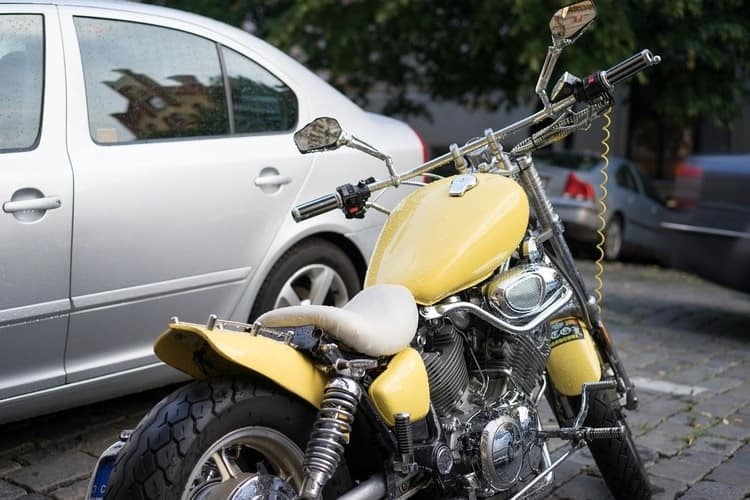Motorcycles Are Smaller Than Cars This Makes Them

Motorcycles are smaller than cars, this makes them, but this is only sometimes the case. Some motorcycles are larger than some cars. This can be attributed to several factors, including that motorcycles often have smaller engines and are more lightweight. Additionally, motorcycles’ design often allows them to be more compact than cars.
If you’re looking for a mode of transportation smaller and more agile than a car, a motorcycle might be just what you’re looking for. So don’t let their size fool you – motorcycles can be a great option for getting around town.
What Are The Dimensions Of A Motorcycle In Comparison To A Car?
When comparing the dimensions of a motorcycle to a car, there are a few things to keep in mind. For starters, motorcycles are much smaller than cars. This is because motorcycles have two wheels while cars have four.
The average motorcycle is about seven feet long and three feet wide. On the other hand, the average car is about sixteen feet long and six feet wide. This means that motorcycles are about half the size of cars.
When it comes to height, motorcycles are also shorter than cars. The average motorcycle is about four feet tall, while the average car is about six feet tall.
One of the biggest differences between motorcycles and cars is the weight. The average motorcycle weighs about 500 pounds, while the average car weighs about 4,000 pounds. This means that motorcycles are about eight times lighter than cars.
How Does The Size Of A Motorcycle Affect Its Performance?
A motorcycle’s size has a profound effect on its performance. The main reason is that a motorcycle’s engine is its most important performance component. The engine is what provides the power that propels the motorcycle forward. The engine’s size determines how much power it can produce.
A larger engine is capable of producing more power than a smaller engine. This means that a motorcycle with a larger engine will be able to accelerate faster and reach higher speeds than a motorcycle with a smaller engine. In general, the larger the engine, the higher the top speed the motorcycle will achieve.
However, other factors can affect a motorcycle’s performance besides its engine size. The weight of the motorcycle is also an important factor. A heavier motorcycle will typically be slower than a lighter motorcycle. This is because the heavier motorcycle will have more mass that needs to be moved by the engine’s power.
The type of tires that a motorcycle has can also affect its performance. A motorcycle with larger and wider tires typically has better traction than a motorcycle with smaller and narrower tires. This improved traction can lead to better acceleration and braking.
All of these factors – engine size, weight, and tires – come into play when determining how the size of a motorcycle affects its performance. In general, a larger motorcycle will be more powerful and perform better than a smaller one.
Why Are Motorcycles Usually Smaller Than Cars?
Motorcycles are usually smaller than cars for a few reasons:
- Motorcycles are more maneuverable than cars. They can make turns more sharply and weave through traffic more easily.
- Motorcycles are more fuel-efficient than cars. They get better gas mileage, so you can go further on a gas tank.
- Motorcycles are usually cheaper to operate and maintain than cars.
They don’t require as much money to keep them running, and you can often do your repairs.
For example, my motorcycle is smaller than most cars. It’s easy to park and maneuver in traffic. I can get through tight spaces that cars can’t. And I save money on gas. I can go about twice as far on a gallon of gas as most cars. I also don’t have to worry as much about maintenance and repairs. I can do much of the work myself, and it doesn’t cost as much to keep my motorcycle running.
How Does The Size Of A Motorcycle Affect Its Fuel Efficiency?
The size of your motorcycle’s engine is one of the main factors that affect fuel efficiency. A larger engine will use more fuel than a smaller engine. This is because a larger engine has to work harder to power the motorcycle.
The weight of your motorcycle also affects fuel efficiency. A heavier motorcycle will use more fuel than a lighter one. This is because a heavier motorcycle requires more energy to move.
The aerodynamics of your motorcycle also plays a role in fuel efficiency. A more aerodynamic motorcycle will be more fuel efficient than a less aerodynamic one. This is because a more aerodynamic motorcycle will have less wind resistance, requiring less energy to move.
So, if you’re looking to get the most fuel-efficient motorcycle possible, you’ll want to look for one with a small engine, a lightweight, and good aerodynamics.
FAQ
What Are The Benefits Of Owning A Smaller Vehicle Like A Motorcycle?
There are a few benefits of owning a smaller vehicle like a motorcycle. One is that they are generally cheaper to purchase than a car. They are also cheaper to operate and maintain since they use less gas and oil and have fewer parts that require regular maintenance.
Are There Any Disadvantages To Owning A Motorcycle Over A Car?
There are a few disadvantages to owning a motorcycle over a car. Motorcycles are less stable than cars, so they can be more difficult to drive. Motorcycles also don’t offer the same level of protection as cars in an accident.
How Does The Size Of A Motorcycle Affect Its Maneuverability?
The size of a motorcycle does affect its maneuverability. A larger motorcycle will be more difficult to maneuver than a smaller one. This is because there is more mass to move around, and the larger motorcycle will have a longer wheelbase. This means that it will take more effort to turn the motorcycle.
What Are The Dangers Of Riding A Motorcycle Vs.? Driving A Car?
Riding a motorcycle is more dangerous than driving a car because motorcycles are less stable and visible than cars, and riders are less protected than drivers. Motorcycle riders are more likely to be injured in crashes than car drivers.
To Sum Up
This conclusion states that motorcycles are smaller than cars, which makes them more maneuverable and easier to park. Additionally, motorcycles get better gas mileage than cars. Motorcycles are smaller than cars, which makes them more agile.




